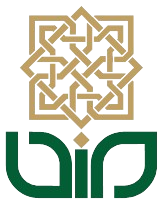The Faculty of Islamic Economics and Business UIN Sunan Kalijaga Yogyakarta once again held a National Talkshow on Saturday, November 14, 2021 as the culminating event of the 7th Febillionaire. In the morning session, Ismail Pakaya from the Ministry of Manpower delivered a presentation on the theme “Building a Creative Economic Mentality.” He provided insights into the structure of Indonesia’s labor force as of August 2021, noting a decrease of 1.67 million in unemployment during that period. Pakaya also elucidated the four components of the impact of Covid-19 on the working-age population. The Covid-19 pandemic has led to a significant increase in unemployment. However, the creative economy has made a substantial contribution to Indonesia’s GDP throughout 2020. Indonesia has emerged as a trailblazing nation in the global creative economy, playing a pioneering role in shaping the world’s GDP in this sector.
Additionally, he elaborated on the 13 sub-sectors of the creative economy, highlighting agriculture as the most dominant job field. The combined impact of tourism and the creative economy surpasses the influence of the agricultural sector. He then delved into the challenges and opportunities related to human resources in Indonesia, emphasizing the emergence of new job types, demographic bonuses, and advancements in governance, particularly national development. The Ministry of Manpower’s provision of vocational training was also discussed, underscoring its advantages such as short duration, pre-employment focus, unlimited participant input, inclusivity oriented towards integrity, entrepreneurship, and productivity, flexibility, and the availability of teaching human resources from business practitioners. It is crucial for the Ministry of Manpower to carry out this job training.
The National Talkshow proceeded in the afternoon with the presence of millennial preacher Habib Husein Ja’far Al-Hadar. He emphasized the duty of a Muslim to become an intellectual, citing the principle of “iqra” (read) as fundamental. In order to overcome life’s challenges, individuals must possess scientific knowledge. Without it, their actions will lack depth and effectiveness. Knowledge should be applied practically, possessing knowledge necessitates its practical application. The purpose of action is self-improvement. In Islam, there are no restrictions on reading material. Islamic teachings highlight the intellectual disparities between Western and Muslim societies. What are the fundamental variances between the intellectual traditions of Muslim and Western societies? In the Western tradition, intellectualism encompasses four key aspects: ontology (the source of reality), epistemology (the source of knowledge), axiology (the usefulness), and methodology (the approach).
In Islamic intellectualism, knowledge is derived not only from sensory perception but also from metaphysical sources. Western knowledge, on the other hand, is believed to originate from the universe or from within human beings themselves. In Islam, knowledge is acquired from texts received by the Muslim community, and the source of philosophy is not typically scrutinized. In the pursuit of discovery, the quest for knowledge is unrestricted. Once a theory is tested and proven valid, it is not typically subjected to further questioning. While the West may consider knowledge to be value-free, in Islam, knowledge is expected to be beneficial and serve others, and it is not to be used for malevolent purposes. The methodology in the Western tradition involves research, whereas in Islam, it can be acquired through Islamic traditions or direct personal experience.
Knowledge is dynamic and capable of mobility. The digital age has brought about significant changes, driven by rapidly advancing technology. For instance, traditional books are now being transformed into podcasts. Adequate preparation is essential for embracing intellectualism in the midst of this digital transformation.
He advised against forsaking Islam while pursuing this transformation. It is a time for the values of Islam to shine. One should not allow the values of Islam and faith to impede transformation, as Islam does not restrict such progress. It is important to consistently nurture creativity, drawing from both internal inspiration and research. Adopt a solution-oriented mindset and avoid exclusivity. Lastly, continue to foster collaboration.
Before the conclusion, the winners of the competitions were announced. The event concluded with a closing speech by Siti Ngaropah, the chief organizer, and Waffiqna Liniyyatil Khair, the vice-chair of DEMA and the person in charge of the 7th Febillionaire event. They expressed their gratitude to the organizers, participants, speakers, moderators, and everyone who contributed to the success of the event. They also extended their thanks to the media partner, kabarbaru.co, for their collaboration in making the event a success. Waffiqna expressed hope for continued collaboration among all parties involved in the future, and for the upcoming editions of Febillionaire to be even better and more exciting.
